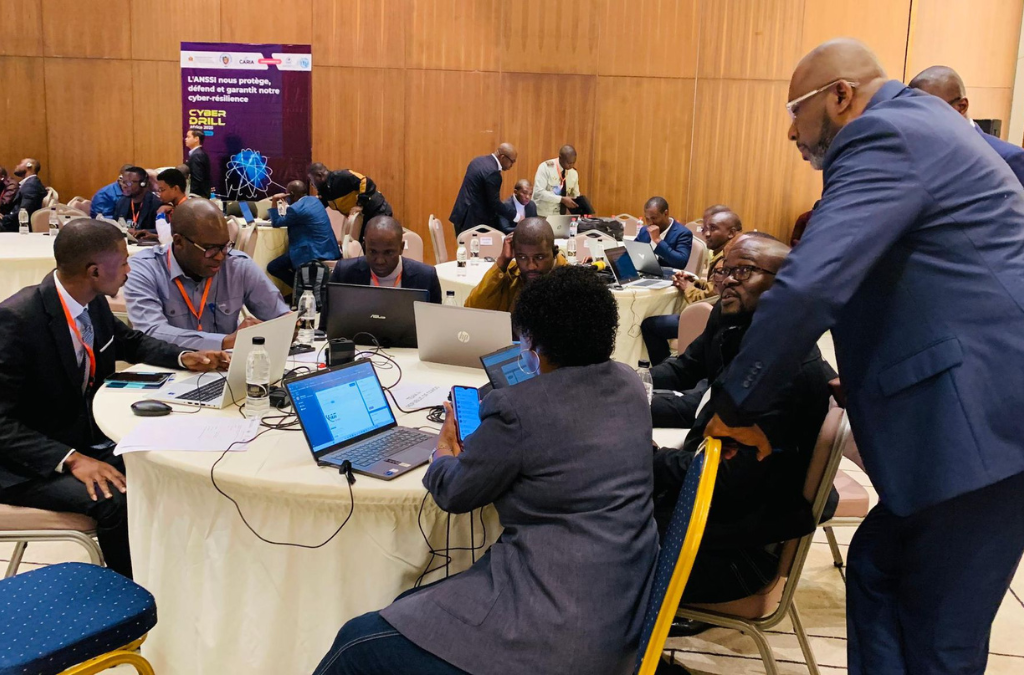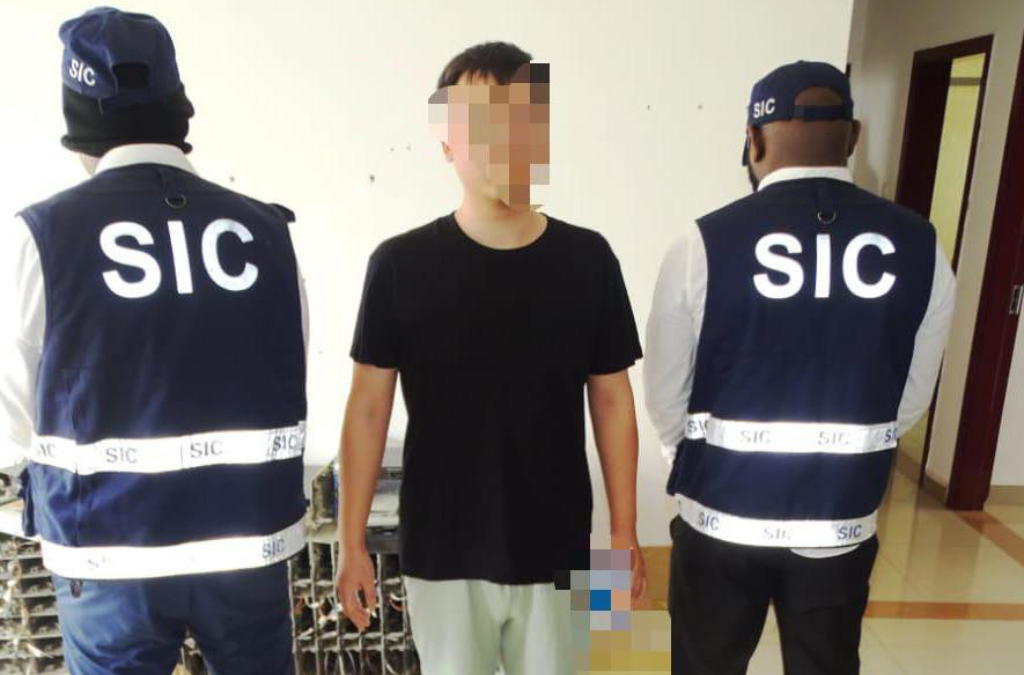Building trust to fight cybercrime in Africa
The rapid digital transformation underway in Africa brings unprecedented opportunities for the continent’s development, but also for cybercrime – which now accounts for up to 30 per cent of all crime in some regions. Lauren M., Regional Specialised Officer for West Africa, explains how INTERPOL is building a robust network to counter cybercrime across the continent.

INTERPOL Spotlight: How has INTERPOL developed its presence in Africa to combat cybercrime?
Lauren M: We publish an Africa Cyberthreat Assessment Report every year and the 2025 edition clearly confirms that cybercrime is a growing threat within the continent, with two-thirds of our African member countries reporting that cyber-related offences account for a medium-to-high share of all crimes. Anticipating this acceleration, INTERPOL has progressively developed a stronger cyber presence across the continent, with five specialist cybercrime officers covering all 54 countries through our African Regional Bureaus in Nairobi, Abidjan, Harare and Yaoundé where I’m based. Our role is to forge strong two-way partnerships with our member countries here – with colleagues in cyber-intelligence units in the countries that have them and with dedicated contacts elsewhere. We also work closely with national Computer Emergency Response Teams and other external organizations and encourage our contacts in member countries to do likewise. The result is a robust expert network that reaches right across the continent.

INTERPOL Spotlight: How does that network take action against cybercrime?
Lauren M: You need to act fast against a cyber-attack and getting intelligence to the country or countries under threat as efficiently as possible is key. The alert could come from our global cyber-intelligence unit in Singapore, from a unit in a member country or a private partner, and we aim to maximise the exchange of actionable intelligence from as many reliable sources as possible. In a recent case in Côte d’Ivoire, one of our private partners, Group-IB detected suspicious email phishing campaigns targeting financial institutions and mobile banking services with malware. We worked closely with them and law enforcement in Côte d’Ivoire, with additional intelligence from the United States Secret Service and other private third parties, and the joint investigation led to the arrest of a key suspect linked to organized crime group OPERA1ER, believed to have been responsible for multi-million dollar ransomware attacks across 15 countries in Africa, Asia and Latin America.
INTERPOL also leads Africa-wide and regional cybercrime operations. We train officers in the participating countries on the types of cybercrime involved in the pre-operational phase and we stay in close contact throughout the operation. We also organize kickoff and debrief meetings for operations, bringing and ensuring everyone is on the same page. There is often some healthy competition at the kickoff meetings, with each country aiming to achieve the best results, and the debriefs are a great forum for sharing best practices and highlighting learnings for next time.

INTERPOL Spotlight: How does that translate into concrete impact in Africa and beyond?
Lauren M: Through Project African Joint Operation against Cybercrime, funded by the UK Foreign, Commonwealth & Development Office, INTERPOL began putting a specific focus on cybercrime in Africa in 2021. Since then, the network we’ve built has led to consistent progress in the operational results. In our main Africa-wide operation, Serengeti, the numbers have risen significantly every year since the first iteration in 2022. Then, we arrested 14 suspects, identified over 20,000 suspicious networks and exchanged nearly 4,000 pieces of data. The latest operation, Serengeti 2.0, which ended this August, led to over 1,200 arrests and almost USD 100 million was recovered. Our West Africa cyber-enabled crime operation Contender has also produced strong operational results. This year, Contender 3 focused on romance scams and sextortion, with 14 African countries participating, a significant increase on 2024. There was also a sharp rise in the number of arrests, from eight in 2024 to 260 this year, and we were able to seize over 1200 devices, identify almost 1,500 victims and recover USD 105,000 in illicit revenues.
These successes reflect the fact that many of our African member countries are now dedicating substantial resources and efforts to countering cybercrime across the continent, both clamping down on the perpetrators and supporting victims. They also show that we have been able to establish trust through collaboration with them and our other partners. Without that you cannot successfully fight crime.



